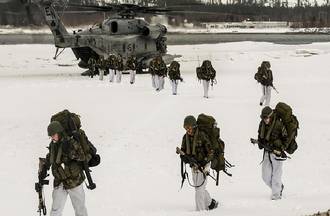Great Power Competition Programme
This programme considers the implications of a return to great power competition, especially for medium powers whose impact is typically magnified in alliances.
With the return to great power competition now accepted in many Western national security strategies, governmental and defence institutions need to adapt. The return of state-based conflict drives a need for military mass to preserve deterrence, which is often achieved through alliances and partnerships that give medium and small powers a louder voice. But while many aspects benefit from partnerships, allies are also competitors in other fields.
Managing the tension between cooperation and competition with allies and partners is fundamental to the success of such a strategy. So too is having a clear idea about what a country wants to achieve, and what choices it is willing to make. This programme also considers strategies of deterrence and containment.
Projects and programmes
View research projects related to this programme of work.







